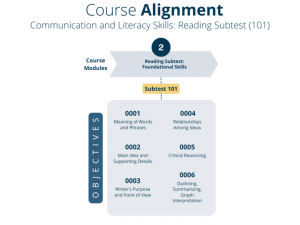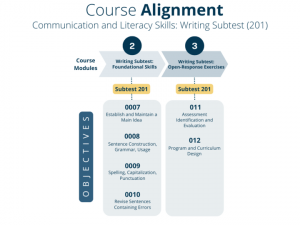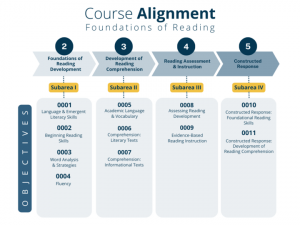
Massachusetts Educators!
If you’re on the path to becoming a licensed early childhood or elementary educator in Massachusetts—welcome! This journey is an exciting one, and we’re here to help you navigate each step with confidence.
As part of the state’s licensure process, you’ll need to pass the following MTEL® (Massachusetts Tests for Educator Licensure) exams. These assessments are designed to ensure that you’re well-prepared to support student learning and literacy from day one in the classroom:
- MTEL® Communication and Literacy Skills: Reading Subtest (101)
- MTEL® Communication and Literacy Skills: Writing Subtest (201)
- MTEL® Foundations of Reading (190) for specific licensure areas
These exams are more than just requirements—they’re opportunities to demonstrate your readiness to inspire, educate, and make a lasting impact. We’re here to support you every step of the way.
Passage Preparation™ can help you get ready for these exams by providing focused, effective preparation designed to help you master the material and approach the tests with confidence.
Effective preparation is the key to success—and that’s exactly what Passage Preparation offers.
Passage Preparation has developed targeted study guides and practice exams aligned precisely with the structure of all three MTEL® exams mentioned above. These resources are designed to help Massachusetts teacher candidates prepare with clarity and confidence.
Most exciting of all, Passage Preparation offers each course independently or in discounted bundles. And even more resources are coming soon to support your success! Click here to find out more!
In this blog, we’ll break down the structure of each MTEL® test, explain who the exams are designed for, and share proven strategies to ensure you’re fully prepared to pass and move forward in your career as an educator.
Let us help you take the next step in your professional journey and make a greater impact in your classroom.
What Are the MTEL® Exams for Massachusetts Teachers?
1. MTEL®: Communication and Literacy Skills: Reading Subtest (101)
This subtest evaluates your ability to comprehend, analyze, and interpret various texts. Key areas include identifying main ideas, understanding text structure, evaluating arguments, and drawing inferences from evidence.
2. MTEL®: Communication and Literacy Skills: Writing Subtest (201)
This subtest assesses your ability to communicate clearly and effectively in writing. It includes:
- Multiple-choice questions on grammar and sentence structure
- 7 sentence correction tasks
- 2 open-response assignments: one summary and one composition
Together, these subtests ensure that educators possess the essential communication and literacy skills needed to support student learning and succeed in professional teaching environments across Massachusetts.
3. MTEL® Foundations of Reading (190)
The Foundations of Reading exam assesses your knowledge of reading and language arts, rooted in scientifically based reading research. It is required for candidates seeking the following Massachusetts licensure areas:
- Early Childhood (PreK–2)
- Elementary (1–6)
Moderate Disabilities (PreK–8 or 5–12)
This exam ensures that future educators have the foundational knowledge and instructional skills needed to foster reading development for diverse learners.
By understanding the structure and purpose of these exams, you’ll be better equipped to prepare effectively and demonstrate your readiness to teach with confidence.
What’s Covered on the MTEL® Exams?
Communication and Literacy Skills: Reading Subtest (101)
- 42 multiple-choice (selected-response) questions
- Computer-based
- Time limit: 4 hours
- Passing score: 240
Communication and Literacy Skills: Writing Subtest (201)
- 35 multiple-choice (selected-response) questions
- 7 sentence correction items
- 2 open-response writing assignments
Computer-based - Time limit: 4 hours
- Passing score: 240
Foundations of Reading (190)
- Multiple-choice and open-response items focused on:
- Phonological and phonemic awareness
- Phonics and word analysis
- Vocabulary development
Reading comprehension - Reading assessment and instructional strategies
- Time limit: 4 hours
- Passing score: 240
Passage Preparation Can Help You Succeed
Each Passage Preparation™ course is divided into modules based on individualized study plans to help you build deep knowledge and test-taking confidence.
MTEL®: Communication and Literacy Skills: Reading Subtest (101) Consists of the following Modules:
- Test Information, Diagnostic Assessment, and Study Tips
- Reading Subtest: Foundational Skills
- Practice Assessment
- Feedback
MTEL®: Communication and Literacy Skills: Writing Subtest (201) Consists of the following Modules:
- Test Information, Diagnostic Assessment, and Study Tips
- Writing Subtest: Foundational Skills
- Writing Subtest: Open Response Exercises
- Practice Assessment
- Feedback
MTEL® Foundations of Reading (190) Consists of the following Modules:
- Test Information, Diagnostic Assessment, and Study Tips
- Foundations of Reading Development
- Development of Reading Comprehension
- Reading Assessment and Instruction
- Integration of Knowledge and Understanding (constructed response questions)
- Practice Assessment
- Feedback
In all three courses, you’ll have unlimited access to quizzes, activities, and practice tests designed to help you prepare for your exam.
After completing any selected-response practice assessment, you’ll receive detailed feedback showing which answers were correct or incorrect, along with the specific competencies each question targets.
These tools are designed to help you pinpoint your strengths and areas for improvement, while also giving you valuable experience with the types of questions you’ll encounter on your licensure exam.
In the first module, you’ll take a diagnostic assessment that will help you create a custom study plan as you work through the course material. Each subsequent module delivers the necessary information in multiple formats, including graphics, videos, and opportunities for engagement through quizzes that assess understanding. Each course also provides opportunities for reflection on your learning throughout the course.
Finally, you’ll take a practice assessment structured like the real test so that you can be prepared for exam day.
Test-Day Mindset: Mental Strategies for the MTEL® Communication and Literacy Skills Exams
Content knowledge and practice are essential, but your mindset on test day can be the true game-changer. The MTEL® Reading (101) and Writing (201) subtests and the Foundations of Reading (190) are high-stakes exams, and it’s completely normal to feel a little nervous. That said, how you manage those nerves can make a significant difference. Here are a few strategies to help you stay calm, confident, and in control:
1. Visualize Success
Spend a few minutes each day imagining yourself in the testing environment—reading carefully, answering questions confidently, and managing your time with ease. Visualization builds mental readiness and helps condition your brain for success.
2. Build a Calming Pre-Test Routine
Avoid cramming the night before. Instead, do a light review, go for a walk, or enjoy an activity that helps you unwind. Be sure to eat a nutritious meal, drink plenty of water, and stick to your normal sleep routine to show up feeling refreshed and alert.
3. Practice Simple Relaxation Techniques
Try deep breathing exercises, like the 4-7-8 method, to manage stress and clear your mind. This technique involves inhaling for 4 seconds, holding your breath for 7 seconds, and exhaling slowly for 8 seconds—helping to calm your nervous system and reduce anxiety. Taking a few deep breaths before starting each section or during breaks can help you refocus and maintain your composure.
4. Prepare Ahead and Arrive Early
Eliminate unnecessary stress by gathering everything you need—your ID, exam confirmation, directions to the test center—the night before. Plan to arrive at least 30 minutes early so you can settle in, get oriented, and begin the exam without feeling rushed.
5. Reframe Test-Day Anxiety
Feeling nervous doesn’t mean you’re unprepared—it means you care. Instead of fighting the anxiety, try to reframe it as energy and focus. A little adrenaline can help heighten your awareness and keep you sharp during the test.
You’ve Got This – And Passage Preparation™ Is Right Here With You
You’re not just taking a test—you’re stepping into your role as an educator, ready to inspire and uplift students. With Passage Preparation’s expertly designed resources, you’ll be ready to approach each MTEL® exam with clarity, confidence, and calm.
You’ve done the work. Now, let’s make sure you walk into the test center fully prepared—mentally and academically.
You’re ready—and we’re right here with you.
